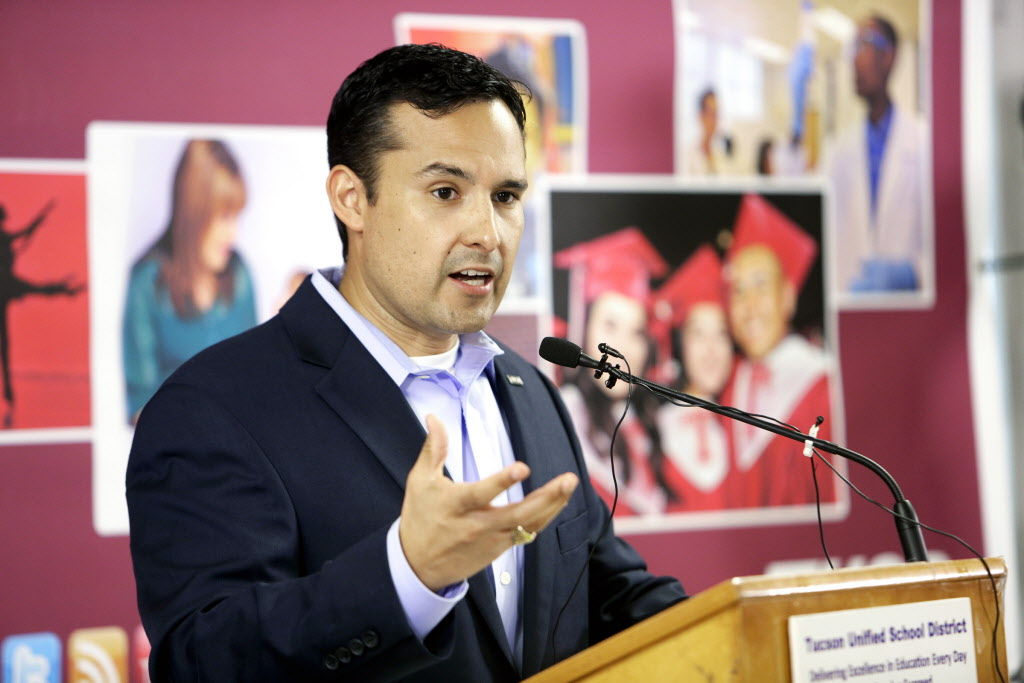TUSD is changing the way it responds to student discipline issues by emphasizing help over punishment.
The approach was shared with more than 400 community members at a TUSD forum that explored bullying, behavior and making meaningful changes to create safe learning environments for children.
“How are we going to look at our kids,” TUSD Superintendent H.T. Sanchez encouraged a crowd of parents, teachers and community members to consider. “It’s a matter of either looking at children from a deficit perspective: what you don’t bring to the table, or what you do bring to the table — the value you add to our community, to our classrooms, to our lives and conversations.”
The model is based on the theory that when students know what is expected of them, classroom disruptions and office referrals decline and academic achievement increases.
While Tucson’s largest school district has been working to create a culture and climate where positive behaviors are praised and support is offered when mistakes are made, whether a child learns those lessons in the classroom depends on where they go to school.
Grijalva and Davidson elementary schools, for example, have been recognized at the state level for creating positive and safe learning environments by making sure students know what is expected of them. At Whitmore Elementary, posters in classrooms, hallways, bathrooms, the cafeteria and other common areas remind students to be respectful, responsible, safe and kind. Students learn what those behaviors look like through staff demonstrations at the beginning of the year and again after they return from winter break.
Other schools have not started that work but the district is committed to establishing those practices at all 80-plus campuses by the end of the school year.
Principals have been trained and will share what they've learned with their staffs. School communities will be tasked with defining what the expectations are for their campuses.
As for why this work has not already been done, Sanchez believes it may be due in part to the fact that TUSD was working in a silo and had not engaged other community stakeholders like faith organizations, juvenile court and the Pima County Attorney’s Office.
Both Pima County Juvenile Court and the County Attorney’s Office have made great strides in offering support services and interventions to at-risk youth in an effort to keep children out of the criminal justice system.
Though the district’s focus is on a support-based model, that doesn't mean there are no consequences, Sanchez said.
“Our student code of conduct is two-fold,” he said. “There is intervention and there are penalties. For horrible situations, there is still a path to expulsion. If you get into a major fight and you assault somebody, there is a path to suspension.
“These options are still there but as opposed to being the first thing we go to for minor offenses, we want there to be a continuum of support before we leverage the consequence.”





